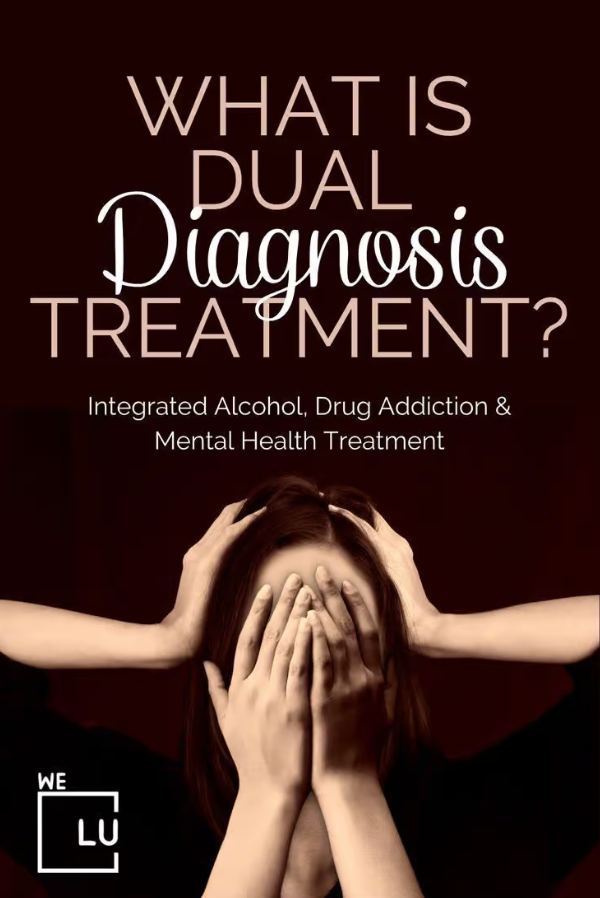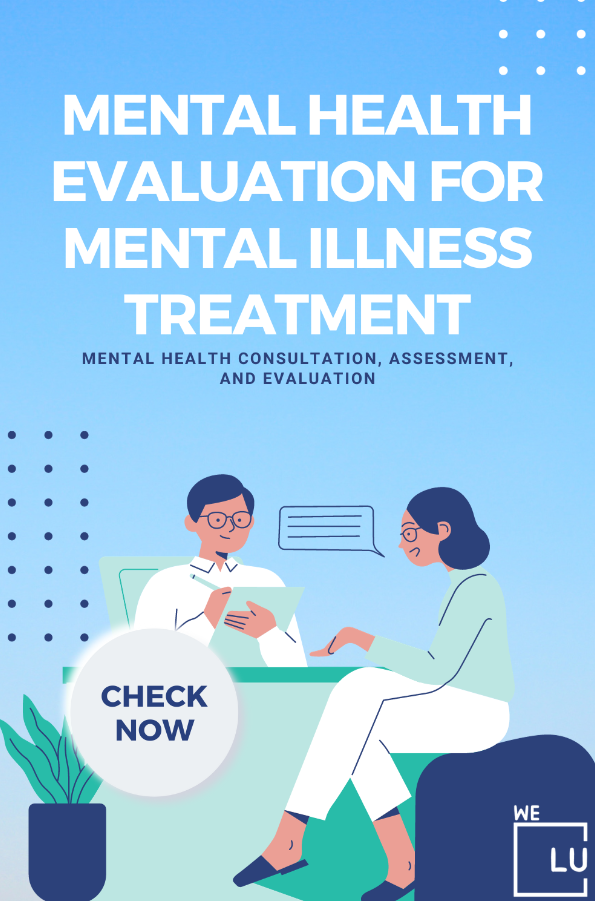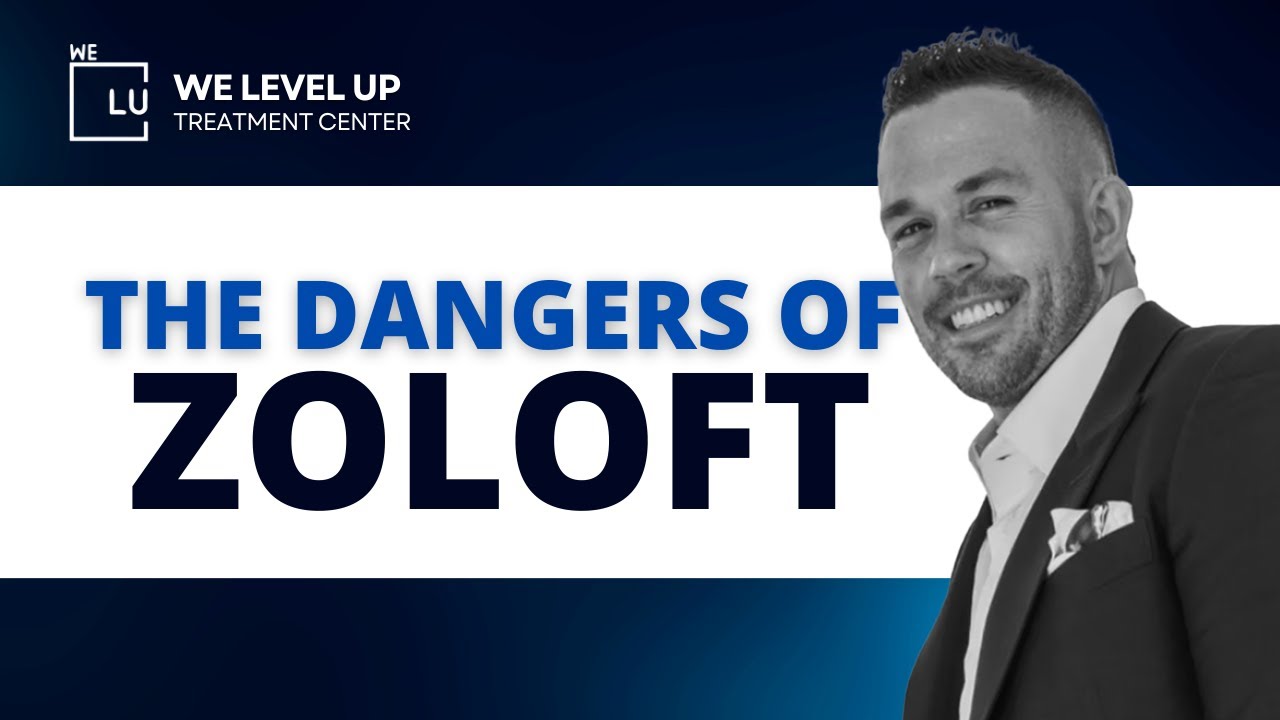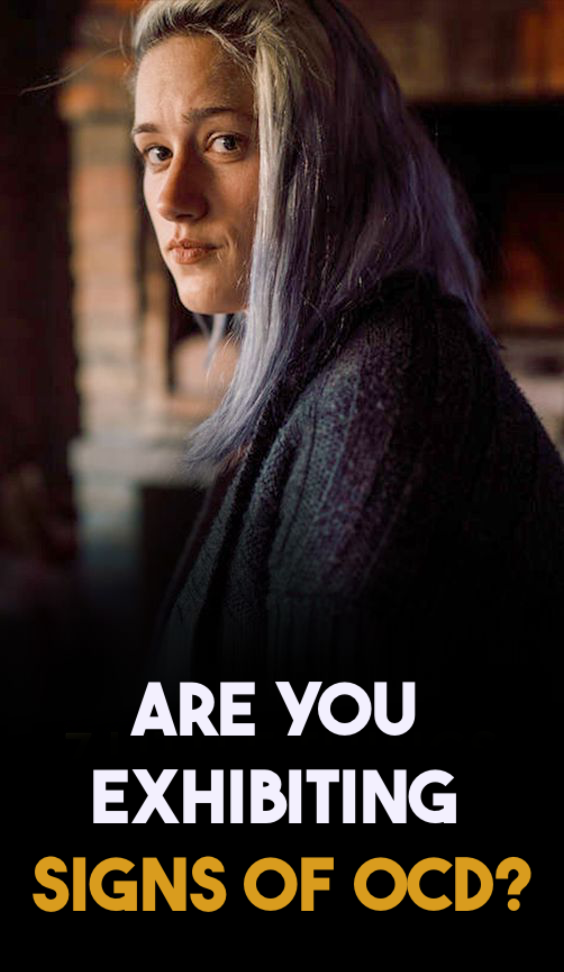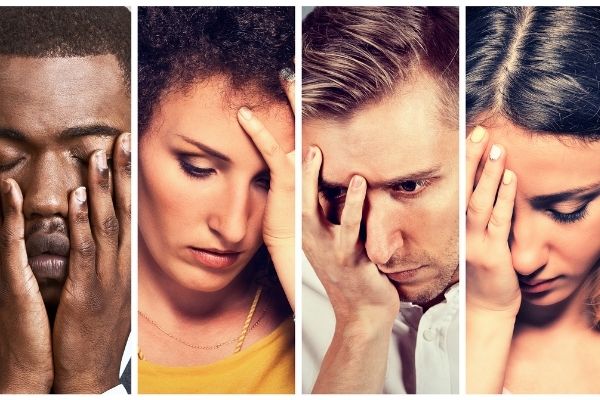The signs of social anxiety disorder are more than just shyness. This is why a personalized social anxiety treatment is crucial.
Ever find yourself stressing about being judged or feeling uneasy in social gatherings? Maybe you don’t like knowing new people because of anxiety? If these symptoms have persisted for at least six months and are interfering with your daily activities, it is a possible social anxiety disorder.
The social events, for the most part, provoke anxiety or fear. The problems are either endured with anxiety or fear or avoided entirely.
Many who are looking for social anxiety disorder treatments turn to alcohol and drugs to self-medicate. Helping clients with both substance use disorders and social anxiety is a vital segment of the We Level Up Texas inpatient dual diagnosis treatment. Reclaim your life today! Call us 24/7 for a free consultation.
Social Anxiety Definition
Social anxiety disorder, also known as social phobia, is described by excessive fear of embarrassment or rejection when exposed to potential negative evaluation by others.
Social Anxiety Disorder Symptoms
- Excessive stress about being judged.
- Fear of social situations.
- Avoidance of social events or interactions.
- Extreme self-consciousness.
- Physical symptoms like trembling or sweating in social situations.
- Difficulty making eye contact.
- Trouble speaking or shaky voice in social settings.
- Fear of embarrassment or humiliation.
- Persistent anxious thoughts before, during, and after encountering people.
- When you need help with forming and maintaining relationships.
- Excessive fear of criticism.
- Overanalyzing social interactions.
- Extreme fear of making mistakes in public.
- Anxiety about upcoming social events.
- Isolation or withdrawal from social occasions.
- Difficulty asserting oneself in social events.
- Fear of negative evaluation by others.
- Lack of self-esteem in social contexts.
- Blushing or nausea in social settings.
- Struggles with participating in meetings or classes.
What Causes Social Anxiety?
Parenting that is overly controlling or intrusive may result in inhibited temperament in kids, raising the risk for social anxiety disorder that could last to adulthood. Adverse and stressful life circumstances may also increase risk.
Other most common risk factors of social anxiety disorder are:
- Family history of social anxiety disorder.
- Personal history of trauma or abuse.
- Shyness or behavioral inhibition in childhood.
- Overprotective or controlling parenting.
- Bullying or peer rejection.
- Negative social experiences.
- Low self-esteem.
- Perfectionism.
- Chronic health conditions or disabilities.
- Substance abuse or dependence.
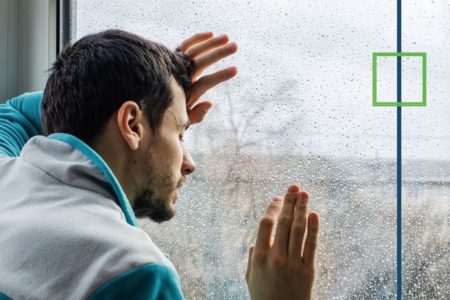
Skip To:
Learn More:
- How to Calm Anxiety Attacks? Symptoms, Causes, and Treatment
- Top 10 Tips on How to Reduce Anxiety Immediately
- Beta Blockers for Anxiety Benefits, Dangers, and Side Effects
- Separation Anxiety in Adults, Causes, Symptoms, and Treatment
- Does Alcohol Help Anxiety?
- Dangers of Mixing Anxiety Medication and Alcohol
- What is Sleep Anxiety?
- What to Know About Valium for Anxiety
- Alcohol and Anxiety Co-Occurring Disorders
- Mental Health Assessment for Mental Illness Treatment
- Dual Diagnosis Treatment
Social Anxiety Treatment Options
Many patients with social anxiety disorder do not realize they have a treatable illness and, therefore, do not seek treatment. Patient education, including public education, is essential to treating and preventing this disorder.
To make the most of treatment, maintain your medical or therapy meetings, challenge yourself by establishing goals to approach social situations that cause you anxiety, take medicines as directed, and talk to your healthcare provider about any transformations in your condition.
Don’t give up if your therapy doesn’t work quickly. You can continue to attend psychotherapy for several weeks or months. Learning new skills to help manage your anxiety takes time. And uncovering the proper prescription for your case can take trial and error.
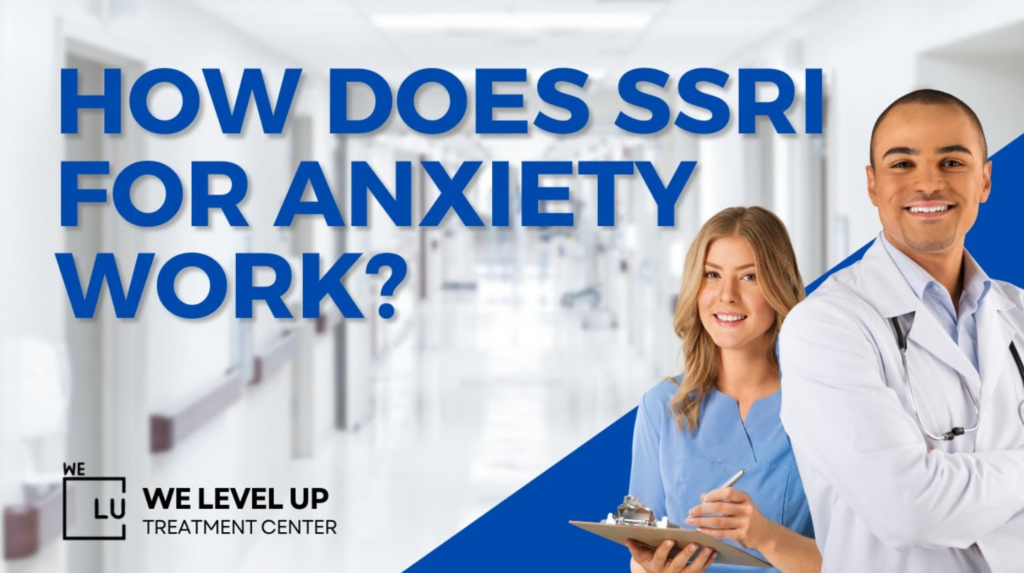
Social Anxiety Disorder Medication
According to the National Institute of Mental Health (NIMH), SAD is the third most common mental illness, affecting a significant proportion of the general population in their lifetimes. Fortunately, evidence shows that social anxiety disorder is highly treatable with either cognitive behavioral therapy (CBT) or pharmacotherapy in the form of SSRIs and SNRIs or beta-blockers. [1]
SSRIs include:
- Fluoxetine (Prozac).
- Sertraline (Zoloft).
- Paroxetine (Paxil).
- Escitalopram (Lexapro).
- Citalopram (Celexa).
- Fluvoxamine (Luvox).
- Vilazodone (Viibryd).
- Vortioxetine (Trintellix).
SNRIs include:
- Venlafaxine (Effexor).
- Duloxetine (Cymbalta).
- Desvenlafaxine (Pristiq).
- Levomilnacipran (Fetzima).
If you’re struggling with anxiety, benzodiazepines might deliver fast relief, but they come with hazards, including dependency and sleepiness. For brief periods, doctors frequently prescribe them.
Beta-blockers lessen the effects of adrenaline, which is advantageous when a rapid heartbeat is a problem, such as when delivering a public speech. For persistent social anxiety, though, they’re not the recommended treatment.
Before considering any natural therapies or supplements, consult your doctor. They can guarantee their safety, and they won’t conflict with any prescription drugs you are already taking.
Social Anxiety Disorder Therapies
Psychotherapy, or talking therapy, helps people comprehend their experiences and develop effective coping methods.
There are many types of psychotherapy, including the following:
- Cognitive behavioral therapy.
- Interpersonal therapy.
- Psychodynamic therapy.
- Family therapy.
Cognitive behavioral therapy is a standard treatment. It aims to help individuals identify and change negative thoughts or beliefs about social situations.
Exposure therapy, or cognitively delivered exposure, can also help. With this approach, the patient gradually works up to facing the occasions they fear with a therapist and in a safe setting.
Support Groups
Many support groups operate in a way that allows participants to observe initially without feeling pressured to speak.
Members of the support groups typically establish a nonjudgmental environment by being more understanding of the difficulties connected with social anxiety. Importantly, these groups generally enable members to watch before actively engaging, installing a safe and welcoming setting. In general, social anxiety support groups provide a helpful environment where people may share their experiences and work on coping mechanisms.
If you’re struggling with anxiety disorders and substance abuse, get resources about treatment counseling today. Start getting support with a free call to our mental health and addiction hotline.
Get Help. Get Better. Get Your Life Back.
Searching for Accredited Drug and Alcohol Rehab Centers Near You? We Level Up Texas Is Opening Soon!
Even if you have failed previously and relapsed, or are in the middle of a difficult crisis, we stand ready to support you. Our trusted behavioral health specialists will not give up on you. When you feel ready or just want someone to speak to about therapy alternatives to change your life call us. Even if we cannot assist you, we will lead you to wherever you can get support. There is no obligation. Call our network hotline today.
FREE Addiction Hotline – Call 24/7Tips on How to Get Over Social Anxiety
At first, being sociable when you’re feeling anxious is challenging. Consider practicing these situations to help you cope:
- Have a meal with a close relative, friend, or acquaintance in a public environment.
- Intentionally make eye contact and return greetings from others, or be the first to say hi or hello.
- Compliment someone.
- Ask a retail clerk to assist you in finding an item.
- Get directions from a stranger.
- Show an interest in others — ask about their homes, children, grandchildren, hobbies, or travels, for example.
- Call a friend to make plans.
- Get ready for social situations.
These additional tips can help you start to face situations that make you nervous:
- Prepare for dialogue, for instance, by reading about current events to identify exciting stories you can talk about.
- Focus on qualities you like about yourself.
- Practice relaxation workouts.
- Learn stress management strategies.
- Set realistic social goals.
- Pay attention to how often the embarrassing situations you’re afraid of occur. The scenarios you fear usually don’t come to pass.
- When embarrassing situations happen, remind yourself that your feelings will pass and you can manage them until they do. Most individuals around you either don’t notice or don’t care as much as you think, or they’re more forgiving than you presume.
- Avoid alcohol to calm your nerves. It may seem like it helps temporarily, but it can make you feel even more anxious in the long term.
Popular Jobs for People with Social Anxiety
While individuals with social anxiety may have varying comfort levels in different situations, some jobs may be more suitable for those who prefer less social interaction or a controlled and structured environment. Here’s a list of jobs to check:
- Freelance Writer/Editor.
- Graphic Designer.
- Programmer/Software Developer.
- Data Analyst/Statistician.
- Librarian.
- Archivist.
- Remote Customer Support.
- Animal Caretaker.
- Online Tutor.
- Medical Transcriptionist.
- Researcher.
- Virtual Assistant.
Social Anxiety Tests
Your doctor will check if other conditions might be causing your anxiety or if you have social anxiety disorder along with other health issues. They may use a physical exam, discuss your symptoms, and review situations that make you anxious.
Social Anxiety and Alcoholism
As the alcohol use disorder treatment community and anxiety treatment centers begin to acknowledge that addiction is itself a mental disorder, the relationship between substance abuse and anxiety disorders becomes more complex. Many treatment rehabs largely lack proper knowledge of dual-diagnosed conditions, so these conditions are still treated individually or worse–not treated or diagnosed at all. Our dual diagnosis treatment center in Texas is one of the facilities with professionals trained to help treat co-occurring disorders. This type of tandem treatment provides high success rates.
If you’re seeking assistance with your rehab journey, reach out to a We Level Up Texas treatment professional today—your call is free and confidential.
Opening Soon! First-Class Facilities & Amenities
World-Class High-Quality Addiction & Mental Health Rehabilitation Treatment
Coming Soon! Rehab Centers TourRenowned Addiction Centers. Serene Private Facilities. Inpatient Rehab Programs Vary.
FREE Addiction Hotline – Call 24/7Proven recovery success experience, backed by a Team with History of:
15+
Years of Unified Experience
100s
5-Star Reviews Across Our Centers
10K
Recovery Success Stories Across Our Network
- Low Patient to Therapist Ratio
- Onsite Medical Detox Center
- Comprehensive Dual-Diagnosis Treatment
- Complimentary Family & Alumni Programs
- Coaching, Recovery & Personal Development Events
We Level Up Texas Dual Diagnosis Treatment for Social Anxiety Disorder
Alcoholism and substance use disorders often start as a way to cope with self-esteem issues and social status or as a form of self-medication. Some risk factors are situational, while others may be linked to brain imbalances. Acknowledging a mental health issue is a crucial step, leading to more effective treatment for concurrent substance abuse. Professional guidance is essential to identify underlying conditions, and dual diagnosis treatment typically involves detox and a focused residency program to equip individuals with tools for long-term recovery.
While you probably desire to live a life free from the bonds of pharmaceutical use, it may be necessary for some patients to use their prescriptions for certain mental disorders. These drugs are seldom addictive or high-inducing in their quality. These prescriptions may be needed to improve the quality of your life and drastically improve the chances of your long-term recovery. Many of the non-addictive anti-anxiety meds are SSRIs and SNRIs. Generally, these medications are safe when used as prescribed.
Many mental health disorders, like alcohol and substance use disorders, are better treated when you fully understand what you are suffering from. Understanding your social anxiety, PTSD, depression, and other disorders and their effects on you goes a long way to realizing your therapy requirements.
Get a free dual diagnosis rehab insurance check without any obligation. The free dual diagnosis insurance check can help you explore several treatment options.
Opening Soon! World-class, Accredited, Anticipated 5-Star Reviewed, Effective Addiction & Mental Health Programs. Complete Behavioral Health Inpatient Rehab, Detox plus Co-occuring Disorders Therapy.
FREE Addiction Hotline – Call 24/7End the Addiction Pain. End the Emotional Rollercoaster. Get Your Life Back. Start Drug, Alcohol & Dual Diagnosis Mental Health Treatment Now. Get Free No-obligation Guidance by Substance Abuse Specialists Who Understand Addiction & Mental Health Recovery & Know How to Help.
5 Effective Ways to Manage Anxiety (2024 TIPS) Informative Video
Start a New Life
Begin with a free call to an addiction & behavioral health treatment advisor. Learn more about our dual-diagnosis programs. The We Level Up treatment center network delivers recovery programs that vary by each treatment facility. Call to learn more.
- Personalized Care
- Caring Accountable Staff
- World-class Amenities
- Licensed & Accredited
- Renowned w/ 100s 5-Star Reviews
We’ll Call You
Search We Level Up Texas Social Anxiety Treatment, Detox Topics, and Resources
Sources
- Rose GM, Tadi P. Social Anxiety Disorder. [Updated 2022 Oct 25]. In: StatPearls [Internet]. Treasure Island (FL): StatPearls Publishing; 2023 Jan-. Available from: https://www.ncbi.nlm.nih.gov/books/NBK555890/ Research related to social anxiety symptoms; social anxiety meaning; severe social anxiety; social anxiety quiz; symptoms of social anxiety disorder.
- Alomari NA, Bedaiwi SK, Ghasib AM, Kabbarah. AJ, Alnefaie SA, Hariri N, Altammar MA, Fadhel AM, Altowairqi FM. Social Anxiety Disorder: Associated Conditions and Therapeutic Approaches. Cureus. 2022 Dec 19;14(12):e32687. Doi: 10.7759/cureus.32687. PMID: 36660516; PMCID: PMC9847330. How to deal with social anxiety? How to get rid of social anxiety? What is social anxiety disorder?
- National Collaborating Centre for Mental Health (UK). Social Anxiety Disorder: Recognition, Assessment and Treatment. Leicester (UK): British Psychological Society (UK); 2013. (NICE Clinical Guidelines, No. 159.) 2, SOCIAL ANXIETY DISORDER. Available from: https://www.ncbi.nlm.nih.gov/books/NBK327674/
- Substance Use and Co-Occurring Mental Disorders – National Institute of Mental Health (NIMH)
- NIDA. 2022, September 27. Part 1: The Connection Between Substance Use Disorders and Mental Illness. Retrieved from https://nida.nih.gov/publications/research-reports/common-comorbidities-substance-use-disorders/part-1-connection-between-substance-use-disorders-mental-illness on 2024, January 4
- Can Using Drugs Help Me Deal With Anxiety and Depression? – National Institute on Drug Abuse (NIDA)
- Woody G. The Challenge of Dual Diagnosis. Alcohol Health Res World. 1996;20(2):76-80. PMID: 31798155; PMCID: PMC6876494. https://www.ncbi.nlm.nih.gov/pmc/articles/PMC6876494/
- Smith JP, Book SW. Anxiety and Substance Use Disorders: A Review. Psychiatr Times. 2008 Oct;25(10):19-23. PMID: 20640182; PMCID: PMC2904966. https://www.ncbi.nlm.nih.gov/pmc/articles/PMC2904966/
- Mental Health Conditions: Depression and Anxiety – Centers for Disease Control and Prevention (CDC) https://www.cdc.gov/tobacco/campaign/tips/diseases/depression-anxiety.html
- Brady KT, Haynes LF, Hartwell KJ, Killeen TK. Substance use disorders and anxiety: a treatment challenge for social workers. Soc Work Public Health. 2013;28(3-4):407-23. Doi: 10.1080/19371918.2013.774675. PMID: 23731428; PMCID: PMC3775646. https://www.ncbi.nlm.nih.gov/pmc/articles/PMC3775646/
